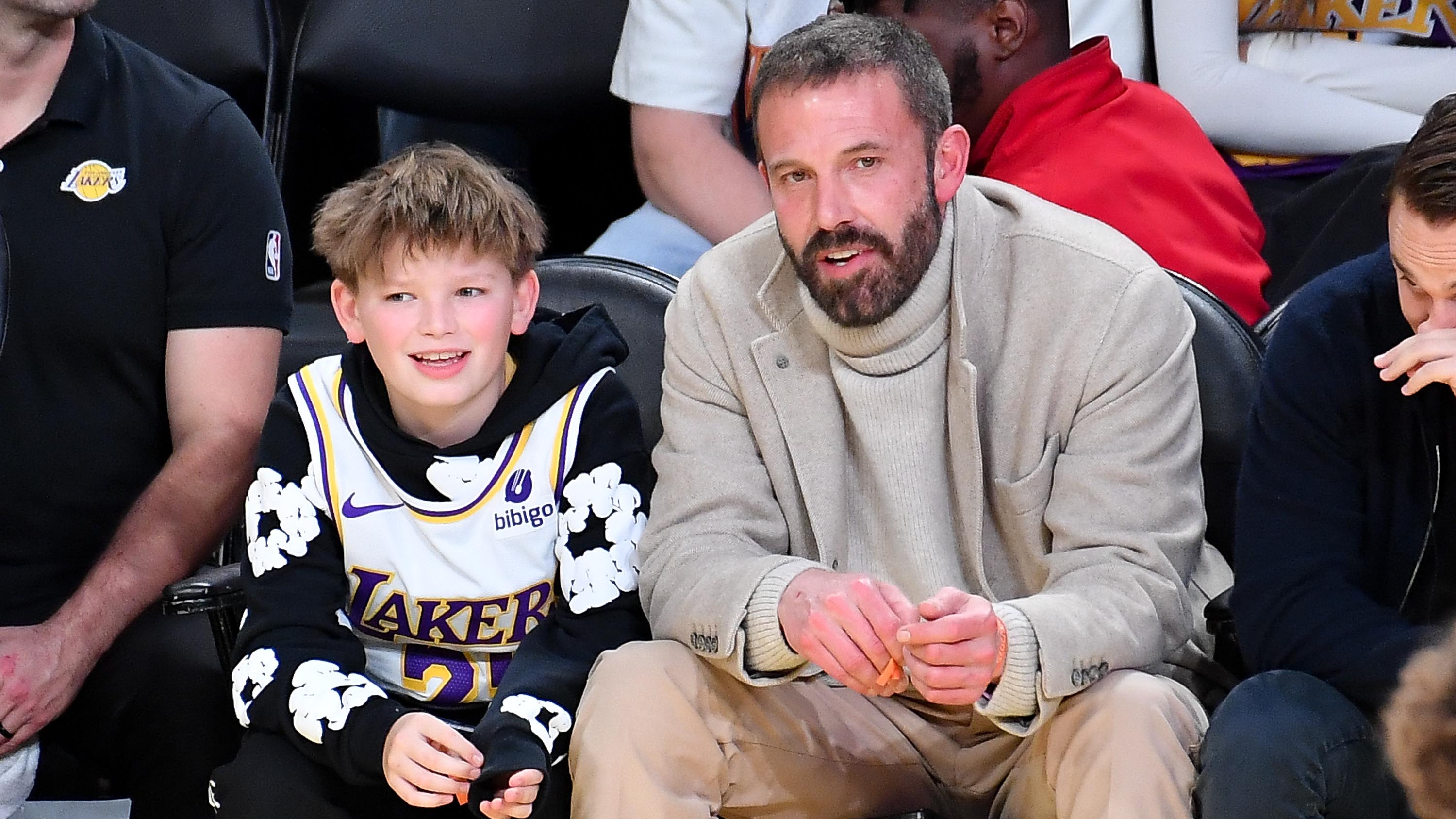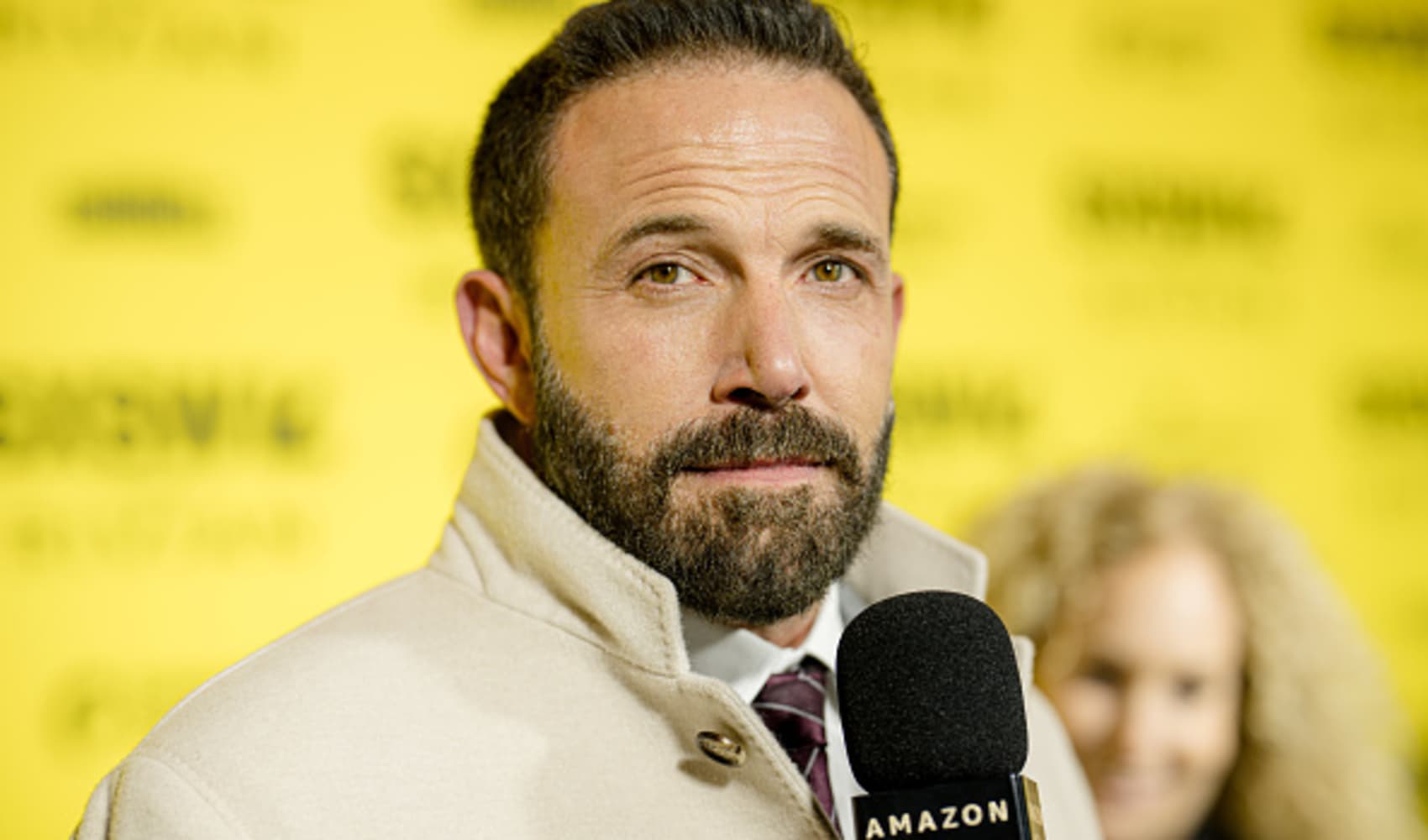Ben Affleck's Son's $6K Sneakers: Tough Love Lessons for Kids
Ben Affleck's Money Lessons: Why His Son Won't Get $6,000 Sneakers Easily
Introduction: Hollywood Wealth and Real-World Values
We often see celebrities living lavish lifestyles, showering their children with expensive gifts. But what happens when those kids expect a free pass to luxury? Well, Ben Affleck recently shared a story about his son, Samuel, wanting a $6,000 pair of Dior Air Jordan 1 sneakers, and Affleck's response is a masterclass in teaching financial responsibility. It's a glimpse into how a Hollywood A-lister balances wealth with instilling good values in his children. Let's dive into the details of this sneaker saga and explore why Affleck believes his kids need to earn their own way.
The $6,000 Sneaker Encounter
The story started at a sneaker convention. Picture this: 13-year-old Samuel, surrounded by coveted footwear, spots a pair of Dior Air Jordan 1s. Their price tag? A cool $6,000. According to Affleck's appearance on Jenna & Friends, Samuel expressed his desire for the shoes, prompting Affleck's now-viral response: "That's a lot of lawns you gotta mow there."
The Viral Moment: "That's a Lot of Lawns You Gotta Mow!"
The clip from the Got Sole Instagram account quickly spread across the internet. Why? Because it resonated with so many parents who struggle with the balance between providing for their children and teaching them the value of hard work. Affleck's witty remark perfectly captured the sentiment of a parent trying to instill a sense of responsibility.
No Sneaker Freebies
Unsurprisingly, Samuel walked away without the expensive sneakers. This wasn’t about denying him a treat; it was about setting a precedent. Are you going to just give them everything they want? Is that really what’s best for them?
Affleck's Philosophy: "I Have the Money. You're Broke!"
Affleck elaborated on the situation on TODAY, recounting Samuel's reasoning: "We have the money." Affleck's sharp reply? "I have the money. You're broke!" While delivered with humor, this statement underscores a crucial point: just because wealth is available doesn't mean it should be freely distributed without effort or understanding.
The Pitfalls of Unearned Wealth
Imagine growing up believing everything is readily available without any effort. How would that shape your work ethic, your appreciation for what you have, or your understanding of the value of money? It’s a recipe for a life of entitlement.
The Disservice of Not Setting Boundaries
Affleck transitioned from humor to a more serious tone, emphasizing the importance of setting boundaries. "Listen, you love your kids — you want to give them everything and do anything for them," he said. "But at the same time, you’re doing them a 'disservice' if you don’t set boundaries."
Avoiding Entitlement: A Key to Success
Entitlement can be a major roadblock to success. It can stifle motivation, breed a lack of empathy, and hinder personal growth. By establishing boundaries, parents can help their children develop resilience, resourcefulness, and a strong work ethic.
Why Affleck's Kids Have Jobs
Affleck's parenting approach extends beyond occasional sneaker rejections. He actively encourages his children to work and earn their own money. Why? Because he understands that a firsthand experience of earning fosters a deeper appreciation for the value of a dollar.
Learning Financial Literacy Through Work
Having a job, whether it's mowing lawns, babysitting, or working at a local store, provides invaluable lessons in financial literacy. Children learn how to budget, save, and make informed spending decisions. These are essential life skills that will benefit them far beyond their teenage years.
Developing Responsibility and Work Ethic
Holding down a job also instills a sense of responsibility and strengthens their work ethic. They learn to be accountable to others, meet deadlines, and handle the challenges that come with earning a living. These qualities are highly valued in the workplace and contribute to overall success.
The Importance of Teaching Financial Responsibility
Ultimately, Affleck's parenting philosophy is rooted in the belief that teaching financial responsibility is crucial for his children's long-term well-being. It's about equipping them with the tools and mindset they need to navigate the financial complexities of life, regardless of their family's wealth.
Preparing for Adulthood
Think of it as building a solid foundation for adulthood. It’s like training them for a marathon. They won't be able to run one without a lot of training, right?
Beyond the Sneakers: Lessons for All Parents
Affleck's sneaker story offers valuable lessons for all parents, regardless of their income bracket. It highlights the importance of setting boundaries, teaching financial responsibility, and instilling a strong work ethic.
Focus on Values, Not Just Material Possessions
Instead of showering children with expensive gifts, focus on cultivating values such as gratitude, empathy, and perseverance. These qualities will serve them far better in the long run.
Start Early: Age-Appropriate Financial Education
Introduce financial concepts early on, using age-appropriate methods. This could involve giving them an allowance, teaching them how to save, or involving them in family budgeting discussions.
Lead by Example: Model Responsible Financial Behavior
Children learn by observing their parents. Model responsible financial behavior, such as budgeting, saving, and avoiding unnecessary debt. Your actions will speak louder than any words.
Balancing Love and Discipline
Parenting is a constant balancing act between love and discipline. It's about providing support and guidance while also setting boundaries and holding children accountable. Affleck's approach demonstrates that love and discipline can coexist, leading to well-rounded, responsible individuals.
The Long-Term Benefits of Tough Love
While it may be tempting to give in to every whim, sometimes tough love is the most beneficial approach. It may not be easy in the short term, but it can yield significant rewards in the long run.
Conclusion: Investing in Their Future
Ben Affleck's story about his son's $6,000 sneaker desire and his emphasis on teaching his children the value of work serve as a powerful reminder: parenting isn't about giving your kids everything they want; it's about preparing them for the challenges and responsibilities of adulthood. By setting boundaries, instilling a strong work ethic, and teaching financial responsibility, Affleck is investing in his children's future, ensuring they grow into capable, independent, and well-adjusted individuals. He’s not just giving them a life; he’s teaching them how to live one.
Frequently Asked Questions
- Why is it important to teach children about money at a young age?
Learning about money early helps children develop good financial habits, understand the value of saving, and make informed decisions about spending. It sets them up for financial success in the future.
- What are some practical ways to teach kids about financial responsibility?
You can start with an allowance system, encourage them to save for desired items, involve them in family budgeting discussions, and provide opportunities for them to earn their own money through chores or part-time jobs.
- How can parents avoid raising entitled children?
Setting boundaries, teaching the value of hard work, modeling responsible financial behavior, and emphasizing gratitude are all effective strategies for preventing entitlement.
- At what age should kids start having jobs or earning their own money?
<
The ideal age depends on the child's maturity and the available opportunities. However, even young children can start with small chores around the house to earn an allowance.
- What if my child comes from a privileged background? Is it still important for them to learn about money?
Absolutely! Regardless of their financial background, it's crucial for children to understand the value of money, develop financial literacy, and learn to manage their resources responsibly. This will empower them to make informed decisions and lead fulfilling lives, irrespective of their family's wealth.


